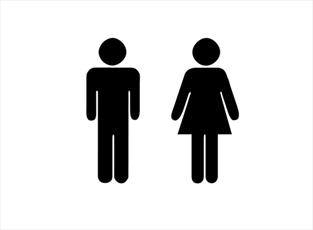Hawzah News Agency-By referring to the Qur’an, Prophetic Sunnah, books of Fiqh and studies on morals, we can compile many texts, principles and thoughts which deal with the reasons of economic injustice:
Allah, the Exalted, says:
“Corruption has appeared in the land and the sea on account of what the hands of people have wrought, that he may make them taste a part of that which they have done, so that they may return.” Holy Qur’an (30:41)
And Allah has also said:
“And you love wealth with exceeding love. “Holy Qur’an (89:20)
“Decked out fair to mankind is the love of desires -Women, children, hoarded treasures of gold and silver, marked horses, cattle and tilth. That is the enjoyment of the life of this world; but Allah – with Him is the fairest return. Say: ‘Shall I tell you of better than that?’ For those that are god-fearing, with their Lord are Gardens underneath which rivers flow, therein dwelling forever, purified spouse, and Allah’s good pleasure. And Allah sees His servants.” Holy Qur’an (3:14-15)
“… Most surely man is ungrateful to his Lord. And most surely he is a witness of that. And most surely he is tenacious in the love of wealth …” Holy Qur’an (100:6-8)
“And those who made their abode in the city and in the faith before them love those who have fled to them, and do not find in their hearts a need of what they are given, and prefer (them) before themselves though poverty may afflict them, and whoever is preserved from the niggardliness of his soul, these it is that are the successful ones. ”Holy Qur’an (59:9)
“Therefore be careful of (your duty to) Allah as much as you can, and hear and obey and spend, it is better for your souls; and whoever is saved from the greediness of his soul, these it is that are the successful. ”Holy Qur’an (64:16)
The Messenger of Allah (s.a.w.w.) is reported to have said:
“Refrain from doing injustice, for it is the darkness of the Judgment’s Day. Avoid misery, it was misery that cut down those who were before you. It made them shed their blood and do haram (what is forbidden and harmful)”.
And the Holy Prophet (s.a.w.w.) is also quoted to have said:
“Two fierce wolves entering a pen of sheep are not as much harmful as avarice and love of a social rank to the faith of a Muslim.” 1
Examining these quotations and compile their content, the following conclusions can be reached:
In the first quotation, the Qur’an blames man for causing his own problem. Corruption, be it political, economic or moral, is only man’s making. Man encapsulates a host of stimuli and desires and he himself is spurred on to extremes in peculiar proclivities, to cause corruption, injustice and tyranny under which humanity suffers greatly.
“Corruption has appeared in the land and the sea on account of what the hands of people have wrought, that He may make them taste a part of that which they have done, so that they may return.” Holy Qur’an (30:41)
Quotations 2,3,4 and 8 emphasize that man’s selfishness, avarice, his excessive love for property and wealth and his tendency to amass them, is the main cause of all his daily problems, in general, and his economic problems, in particular.
Quotations 5,6 and 7, from the Qur’an and holy Prophetic traditions, how that avarice itself which is a vice used with great eagerness and desire to obtain and keep wealth away from the bands of others, is the latent, effective factor behind man’s greed and his predilection to monopolize wealth and deprive others from it.
In summary, we can assert an important fact in the world of economics, as clearly stated by Islam and known as the cause behind the problem of wealth distribution, is man’s self-centeredness and his greed. For the worlds of the holy Quranic verses and Prophetic traditions lay great stress on avarice and greed as the root causes of the economic problems in the fields of distribution and consumption.
This view rules out the effect of external conditions, including means of production, whether in abundance or scarce, and distribution, for man, himself, controls distribution, His will controls it. His awareness identifies his view of justice, the value of money and wealth and the meaning of life. It is this very awareness that principally outlines the way he adopts in dealing with himself and others.
Everywhere and every time subjective factors are the root causes of the problems and the sources of economic injustice, regardless of the variation in conditions, means and quantity of production, which tend themselves to be by-products resulting from the original misdiagnosis.
The only way to save man from economic injustice and confusion is his daily life, re-shaping his existence and re-formulating his conceptions, his view of life, money, wealth, profit and moral pleasure, in a sound and objective way and in harmony with the Qur’an and in agreement with its deep, analytical views.
Allah, the Exalted, says:
“… surely Allah does not change the condition of a people until they change their own condition; …” Holy Qur’an (13:11)
Unless an independent, economic system is adhered to this, change cannot be fully successful; a system, which takes upon itself the task of re-distributing human wealth and managing economic life in agreement with the principles of Islamic justice and equality and not on high-fluting theories that lose the essence of what the basic problem is:
Allah, the Exalted, says:
“And that if they should keep to the (right) way, we would certainly give them to drink of abundant water.” Holy Qur’an (72:16)
“And if the people of the towns had believed and guarded (against evil) we would certainly have opened up for them blessings from the heaven and the earth …”Holy Qur’an (7:96)
Source: Economic Distribution in Islam. Presented by: Al-Balagh Foundation



Your Comment